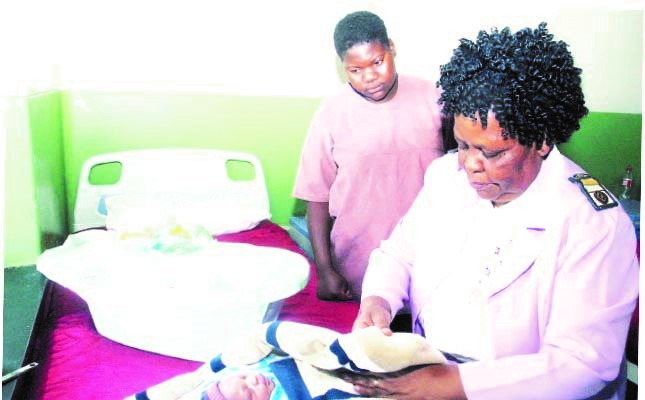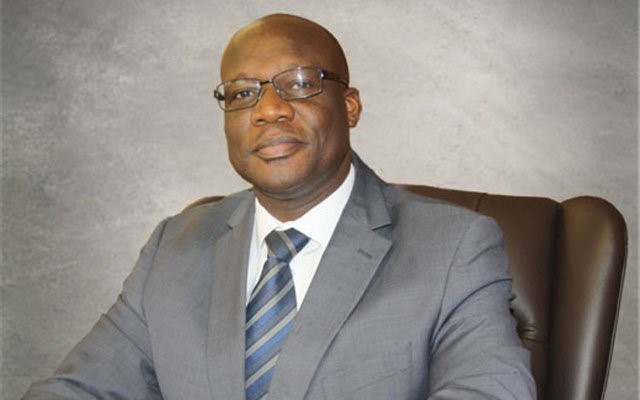
RECENTLY, a bombshell was dropped by Finance minister Patrick Chinamasa when he told Parliament that he nearly transferred $20 million collected for the Health Levy Fund to the Consolidated Revenue Fund due to the Health and Child Care ministry’s failure to use it.
BY VENERANDA LANGA
MPs were shocked by Chinamasa’s statement, as the country’s health sector is in dire straits, with lack of adequate infrastructure and drugs.
The fund is financed by Zimbabweans who are charged five cents per every dollar of airtime, which is channelled towards the health sector, and while the Health ministry has been keeping the money under wraps, patients are struggling to get proper treatment at hospitals due to lack of drugs and blood supplies, which are very costly at $120 to $140 per pint.
“The five cents charged in every dollar of airtime managed to collect $20 million to date,” Chinamasa disclosed to the National Assembly.
“However, my disappointment was the Health ministry’s very slow rate of absorption, where we ended up threatening them that if they do not use the money, we will put it into the Consolidated Revenue Fund.”
While this was happening, the country’s budget has been failing to meet the 15% allocation towards Health, as stipulated by the Abuja Declaration.
Health minister David Parirenyatwa later explained the issues surrounding the Health Levy Fund, saying it collected
$22 million, adding that from that figure, $16 million would go towards the purchase of drugs and other accessories.
“I am quite certain that within the next few weeks, there will be a sizeable difference in terms of supply of medicines in our institutions.
The challenge that we have is that we could have used more money, but the constraint has been foreign currency allocation,” he said.
In Parliament, MPs have been fighting in Parirenyatwa’s corner to ensure that the Health ministry gets a sizeable budget.
Initially, Chinamasa had allocated
$454 million to Health, but MPs in the National Assembly refused to pass the whole budget unless the allocation was increased.
Their position worked, and the Finance minister increased the Health budget to $520 million, begrudgingly though.
“I will increase the Health budget to at least $520 million, and please, let us not dish out money which is not there, because if the revenue is there, I will even allocate the Health ministry $2 billion. What is going to happen with my compromise is that something is going to lose out and I do not know which allocation will be affected,” Chinamasa said.
Health sector analyst and Community Working Group on Health (CWGH) executive director, Itai Rusike said the $520 million revision of the Health budget would increase the per capita (per person) allocation for 2018 to $33 from the measly $24 before the health budget was increased.
“The revised 2018 health budget has remained largely uninspiring given that it still has not addressed critical issues that were raised during the budget consultations. Despite pressure from a wide section of society and Parliamentarians, the health budget still falls massively short of the needs of the health sector,” he said.
“The revised $520 million allocated to the Health and Child Care ministry for the 2018 fiscal year represents about 9,8% of the total budget, slightly more than what was allocated in 2017 and still remains below the Abuja target of 15%. The estimated per capita budget allocation for 2018 is $33, which is still far less than the World Health Organisation recommended minimum per capita expenditure of $86.”
The health expert said universal health coverage could only be achieved by coming up with sustainable and innovative domestic health financing strategies, such as revisiting the national health insurance as the economy recovers.
He said the revised budget still failed to provide a specific line budget for the purchase of ambulances, which are a critical component for hospitals’ referral systems and can cause unnecessary deaths if they are not readily available, as well as for purchases of cancer and non-communicable diseases equipment.
Rusike said the budget needs to prioritise prevention rather than emphasising allocation of more resources to curative services.
“Despite the country battling with a typhoid and cholera crisis, we are still not putting more money on preventive services. The budget allocation to the health sector is inadequate in the time of rising diseases and mortality levels, particularly those allocations to preventive diseases,” he said.
To further grow the Health budget, Bulawayo South MP Eddie Cross (MDC-T) suggested that electronic transactions such as swipe should be taxed five cents per dollar.
But Chinamasa refused to implement it, saying the tax is already in place. The Treasury boss said if he further taxed electronic and swipe transactions, then people would desist from using plastic money.
A report by the Parliamentary Portfolio Committee on Health presented by Binga North MP Prince Dubeko Sibanda (MDC-T) in Parliament on the Health ministry’s 2018 budget said the committee recommended that the National Pharmaceutical Company (NatPharm) be recapitalised to enable it to purchase drugs in bulk.
“Bulk buying of drugs will help to ensure a stable supply of drugs to public hospitals. Pharmacies also stand to benefit through buying drugs from NatPharm at lower prices,” he said.
The cost of drugs in the country had gone up by 70% in October 2017. Parliament also recommended that the government considers giving incentives to drug-producing companies, so that they produce locally and curb foreign currency flight through imports.
There were also recommendations that the Reserve Bank of Zimbabwe should prioritise foreign currency allocations to pharmaceutical
companies.
“We also recommend that the staff establishment in the health sector, which was last revised in 1982 when the population was only seven million, be revised so that it matches with the disease burden and also matches the size of the population that we have,” Sibanda said, adding that the current employment freeze should exempt the health sector.
Parliament also feels that to further grow the Budget, sin taxes must be introduced on alcohol and tobacco, as well as levied on sugary foods, so that the collected funds go towards treatment of non-communicable diseases.








 Godwin Matanga
Godwin Matanga
